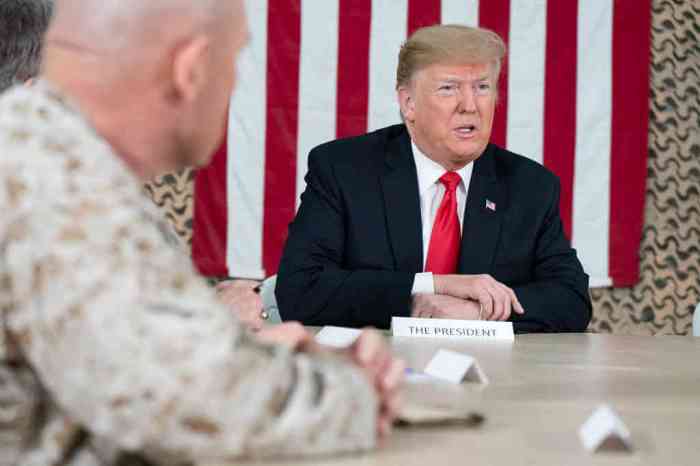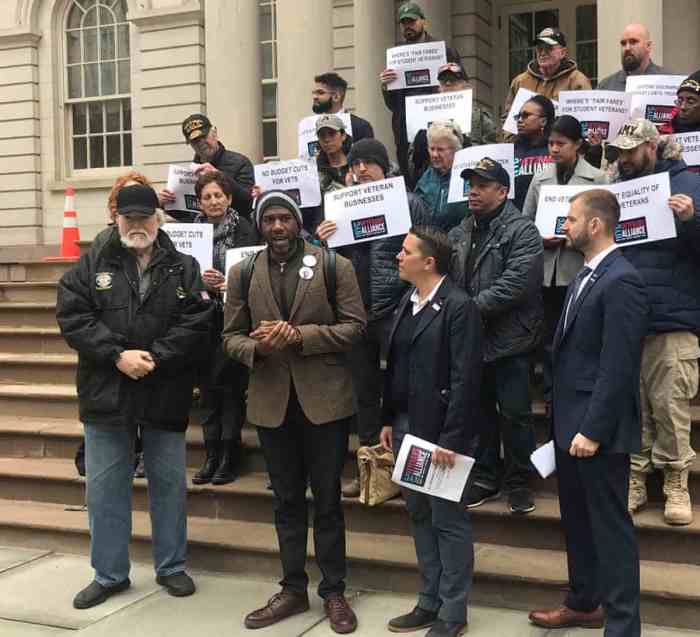Although the Supreme Court gave the green light for the military to impose its transgender service ban in April while lawsuits challenging the policy continued, those lawsuits have continued.
Attempts by those challenging the policy to obtain the information necessary to prove their constitutional claims have been frustrating, as the Trump administration has treated discovery in the four pending cases just like it treated the House of Representative’s impeachment investigation. From the beginning, the Justice Department has argued that almost all the information sought by the plaintiffs is covered by some sort of privilege, either “executive” or “deliberative,” that shields it from disclosure.
But on December 18, US District Judge Marsha J. Pechman in Seattle issued the latest of several rulings concerning the government’s assertion of “deliberate process privilege” over about 35,000 documents that have been identified by the plaintiffs.
The main focus of discovery at this point is the plaintiffs’ attempt to get behind the veil of secrecy drawn by the government over how the policy was adopted. First announced as a total ban by President Donald Trump in his infamous July 2017 tweets, the policy implemented in April 2019 reflected changes from that approach. Some of those changes clearly came in response to the lawsuits quickly filed against the policy and undoubtedly reflected the Justice Department’s reaction to preliminary injunctions issued in all four cases against the original ban Trump announced.
The policy adopted this past April was based on a plan that then-Defense Secretary James Mattis proposed in February 2018 developed by a “panel of experts.” The report issued by that panel did not identify its members and its sources of data were referred to only in general terms — and it read very much like articles in conservative journals written in opposition to transgender rights. The report’s conclusions were that service by trans individuals “would impede readiness, limit deployability, and burden the military with additional costs.”
In order to sustain their challenge, the plaintiffs must prove that the report’s conclusions are not supported by any serious study or sound military judgment, but rather are the result of politics and ideology. To do so, of course, they must have access to details on how the panel reached its determination and be able to depose the experts. Here is where the government’s privilege arguments come into play.
Courts generally recognize that the president is entitled to confer in confidence with Executive Branch officers and others in order to develop policy, but those rights are not absolute. The most famous example of a court-ordered breach of this confidentiality came during the impeachment investigations into Richard Nixon in the mid-1970s, when the Supreme Court unanimously ordered him to surrender tape recordings of conversations with his advisors in the Oval Office. Still, courts have also recognized a similar “deliberative process privilege” to policymakers in the Executive Branch generally to allow for free and wide-ranging discussion prior to adopting formal policies.
In the four pending transgender service cases, several of the district judges, including Pechman — drawing on precedents holding that privilege must give way when the central issue in a serious constitutional case depends on proof of policymakers’ motivations — have concluded that the plaintiffs have discovery rights.
When the government appealed Pechman’s earlier discovery orders, the Ninth Circuit Court of Appeals agreed with her both that heightened scrutiny of the government’s policy is appropriate on equal protection grounds and that some government privilege claims may have to fall if appropriate discovery needs warrant that. The Ninth Circuit, however, did not approve a broad discovery order, instead requiring specific analysis of narrowly defined groups of documents — what it called a “more granular” approach.
Following a December 10 meeting between attorneys for the plaintiffs and the government on five specific discovery requests, Pechman issued her December 18 ruling. The government must turn over most of the information requested, identify members of the Pentagon’s expert panel as well as those who provided it with information, and turn over successive drafts of the policy eventually approved by Mattis and forwarded to Trump.
This doesn’t mean that the information is necessarily going to become public right away.
“To mitigate any potential chilling effect upon the future deliberations of government actors,” Pechman wrote, “these documents shall be produced for attorneys’ eyes only.”
By December 20, the government had already begun to work on complying with Pechman’s order. And both parties will meet with the judge again on February 3 to assess a second round of documents requested by the plaintiffs.
The team of lawyers representing the plaintiffs is led by attorneys from Lambda Legal and cooperating law firms that volunteered to assist in the lawsuit.
Similar discovery battles and orders are playing out in the three other cases. It seems possible that by sometime in 2020, the litigation will have advanced to the stage where courts will either consider motions for summary judgment or begin hearings where witnesses will be examined.
Still, it’s possible that a final ruling on the merits will never occur in any of these cases. If Trump is not re-elected, a new Democratic president is likely to restore the open service policy adopted late in the Obama administration. And, if the president is re-elected, it is entirely possible he might be amenable to a negotiated settlement if he concludes he no longer has to curry favor with the parts of his base he has been pandering to with this policy.
Meanwhile, the Supreme Court’s eventual ruling this winter or spring in the pending Harris Funeral Homes case, concerning whether discrimination based on gender identity is a form of sex discrimination, may affect the government’s willingness to compromise its position in the transgender military cases.


































